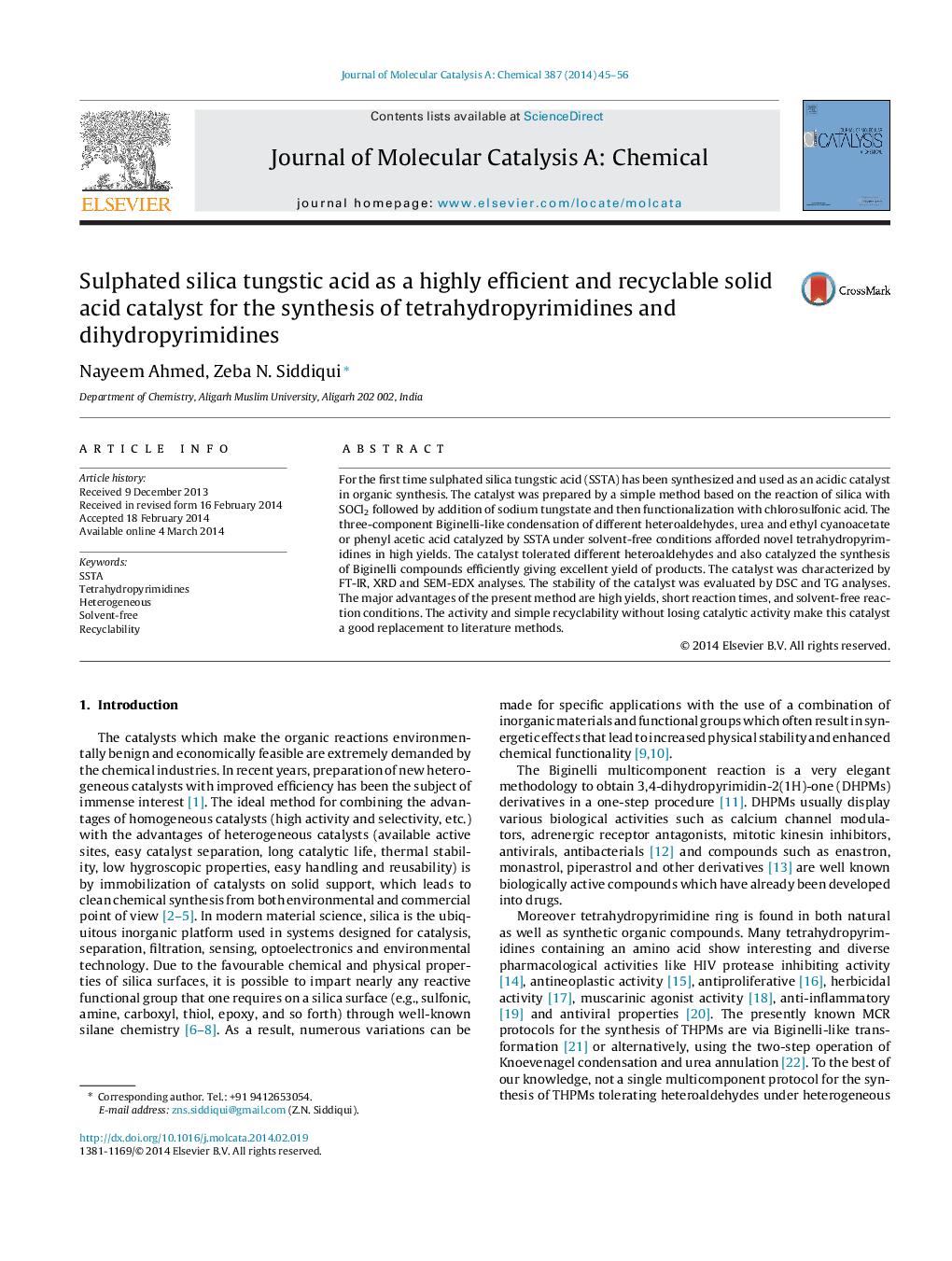| Article ID | Journal | Published Year | Pages | File Type |
|---|---|---|---|---|
| 65446 | Journal of Molecular Catalysis A: Chemical | 2014 | 12 Pages |
•Highly efficient environment friendly protocol for the synthesis of di- and tetrahydropyrimidines.•SSTA is used as a non-toxic, recyclable heterogeneous catalyst.•Excellent yield of products and short reaction times.•Characterization of SSTA by FT-IR, SEM-EDX, powder XRD and DSC/TG analyses.
For the first time sulphated silica tungstic acid (SSTA) has been synthesized and used as an acidic catalyst in organic synthesis. The catalyst was prepared by a simple method based on the reaction of silica with SOCl2 followed by addition of sodium tungstate and then functionalization with chlorosulfonic acid. The three-component Biginelli-like condensation of different heteroaldehydes, urea and ethyl cyanoacetate or phenyl acetic acid catalyzed by SSTA under solvent-free conditions afforded novel tetrahydropyrimidines in high yields. The catalyst tolerated different heteroaldehydes and also catalyzed the synthesis of Biginelli compounds efficiently giving excellent yield of products. The catalyst was characterized by FT-IR, XRD and SEM-EDX analyses. The stability of the catalyst was evaluated by DSC and TG analyses. The major advantages of the present method are high yields, short reaction times, and solvent-free reaction conditions. The activity and simple recyclability without losing catalytic activity make this catalyst a good replacement to literature methods.
Graphical abstractFigure optionsDownload full-size imageDownload high-quality image (193 K)Download as PowerPoint slide
